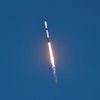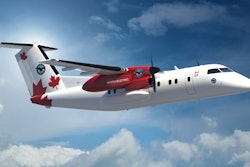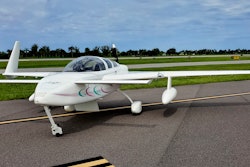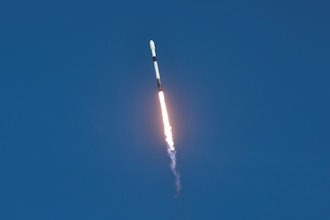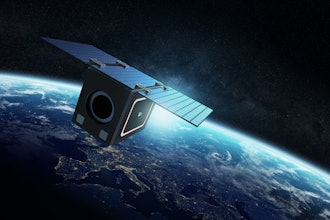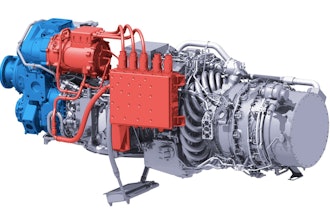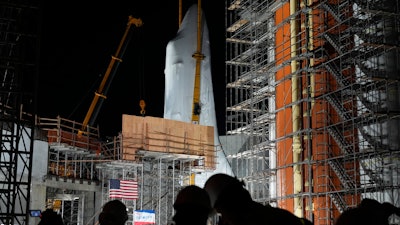
LOS ANGELES (AP) — NASA's retired Space Shuttle Endeavour was carefully hoisted late Monday to be mated to a huge external fuel tank and its two solid rocket boosters at a Los Angeles museum where it will be uniquely displayed as if it is about to blast off.
A massive crane delicately began lifting the orbiter, which is 122 feet (37 meters) long and has a 78-foot (24-meter) wingspan, into the partially built Samuel Oschin Air and Space Center at the California Science Center in Exposition Park.
The building will be completed around Endeavour before the display opens to the public.
The 20-story-tall display stands atop an 1,800-ton (1,633-metric ton) concrete slab supported by six so-called base isolators to protect Endeavour from earthquakes.
All parts of the vertical launch configuration are authentic components of the shuttle system, including the rust-colored external tank, which was flight-qualified.
Endeavour flew 25 missions between 1992 and 2011, when NASA's shuttle program ended.
The shuttle was flown to Los Angeles International Airport in 2012 atop a NASA Boeing 747 and then created a spectacle as it was inched through tight city streets to Exposition Park. The external tank arrived by barge and made a similar trip across the city.
The shuttle was initially displayed horizontally in a temporary exhibit hall. A groundbreaking ceremony for the Air and Space Center was held in 2022 on the 11th anniversary of Endeavour's final return from space.
The process of assembling the shuttle system in vertical configuration was dubbed "Go for Stack," an informal term for putting together rocket components for launch.
It began in July with precise installation of the bottom segments of the side boosters, known as aft skirts, for the first time outside of a NASA facility. In use, the boosters would be attached to the external tank to help the shuttle's main engines lift off.
The 116-foot-long (35.3-meter-long) rocket motors were trucked to Los Angeles from the Mojave Desert in October and were installed the following month.
In all, NASA operated five shuttles in space. Shuttle Challenger and its crew were lost in a launch accident Jan. 28, 1986. Columbia and its crew were lost during return from orbit Feb. 1, 2003. Retired shuttles Atlantis and Discovery and the test ship Enterprise, which did not go to space, are on display across the country.
Atlantis is at Kennedy Space Center, Florida, where it is displayed as if in orbit with its payload doors open and robotic arm extended. Discovery rests on its landing gear at the National Air and Space Museum's Steven F. Udvar-Hazy Center in Chantilly, Virginia.
Enterprise, which was released from a carrier aircraft for approach and landing tests, is displayed at the Intrepid Museum in New York.

